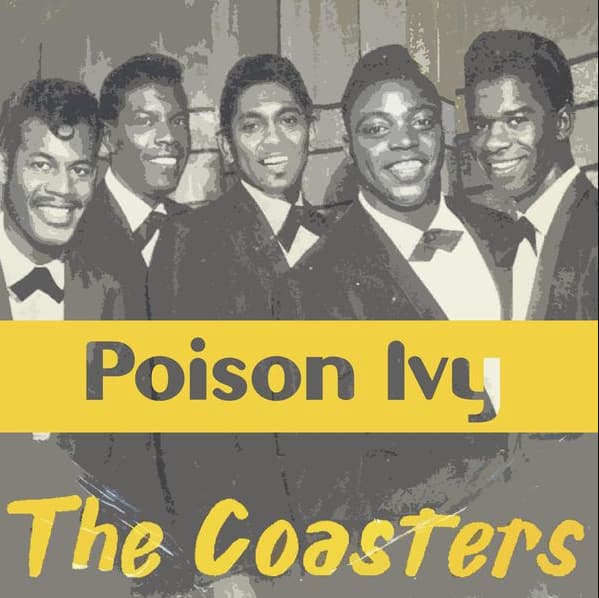
The Coasters – Poison Ivy: A Nostalgic Tale of Love and Warnings
In the autumn of 1959, The Coasters released a playful yet cautionary tune titled “Poison Ivy,” a song that would soon climb to the number seven spot on the Billboard Hot 100. With its catchy rhythm and clever lyrics, “Poison Ivy” captured the essence of an era defined by rock ‘n’ roll’s burgeoning influence and the youthful exuberance of the late 1950s. But beyond its infectious melody, the song harbors a deeper narrative—one that intertwines themes of love, caution, and the perennial dance between attraction and risk.
The genius behind “Poison Ivy” lies in its creators, the legendary songwriting duo Jerry Leiber and Mike Stoller. Known for their ability to blend humor with insight, Leiber and Stoller crafted a piece that uses metaphor to explore the complexities of romantic relationships. The titular “Poison Ivy” isn’t just a plant known for its irritating rash; in this context, it symbolizes a captivating yet potentially hazardous love interest. The lyrics cleverly warn young men about the allure of a woman who, like poison ivy, is beautiful but can lead to discomfort and trouble.
For many listeners who first encountered “Poison Ivy” in their youth, the song evokes memories of jukeboxes glowing in dimly lit diners, where teenagers gathered to sip milkshakes and share dreams under a haze of cigarette smoke. It was a time when music was both an escape and a mirror reflecting their own lives’ burgeoning complexities. The Coasters, with their distinctive vocal harmonies and charismatic performances, delivered this message with an upbeat tempo that belied its cautionary tale—a juxtaposition that only served to deepen its impact.
As we reminisce about those days gone by, it’s easy to recall how “Poison Ivy” played on radios across America, its beat providing the soundtrack for countless summer evenings. The song’s success was not just in its chart performance but in its ability to resonate with audiences across generations. Its playful warning remains timeless: a reminder of how love can be as enchanting as it is perilous.
The cultural impact of “Poison Ivy” extends beyond its initial release. Over the decades, it has been covered by various artists, each bringing their own interpretation to its timeless message. From The Rolling Stones to Manfred Mann, these renditions attest to the song’s enduring appeal and its universal theme—a testament to the brilliance of Leiber and Stoller’s songwriting prowess.
For those revisiting “Poison Ivy” today, it conjures a sense of nostalgia—a return to simpler times when music was not just heard but felt deeply. It serves as a poignant reminder of our younger days when life was both simpler and infinitely more complicated by matters of the heart. As you listen once more to The Coasters’ harmonies, allow yourself to be swept back to those golden years when every note carried with it the promise of adventure and the sweet sting of youthful love.
In conclusion, “Poison Ivy” remains a classic not just for its musicality but for its insightful commentary on love’s dual nature—both beautiful and potentially treacherous. It’s a song that continues to speak to us across time, reminding us all that some things never change—even as everything else does.